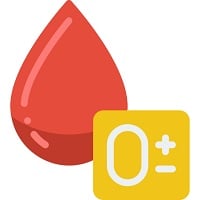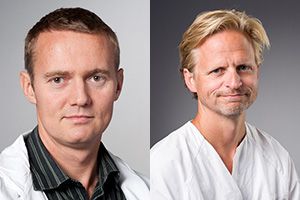
Views: 177
– “This tells us why someone gets the serious lung disease at Covid-19, which is what kills patients,” says study leader Professor Tom Hemming Karlsen at the Faculty of Medicine at UiO.
Courtesy Oslo Iniversity UiO: As the first in the world, researchers have uncovered two genes that cause the serious lung disease of coronary heart disease patients. The finding shows the importance of your blood type.
– This is very, very big. The finding of these two genes sheds unexpected light on how severe lung disease in Covid-19 infection can occur and develop in some patients, says Tom Henning Karlsen in a press release from UiO. He is a professor at the Institute of Clinical Medicine at UiO and the last author of the study.
Two genes that cause severe lung disease in coronary patients

The Norwegian- led genetic study has uncovered two genes that cause severe lung disease by coronary infection. One depends on the type of blood you have, while the other potentially affects how the virus binds to the cells in the body and the body’s reactions to the virus.
– The finding may open up new focused treatment strategies for this scary complication that will make some patients go wrong. In addition, identifying these genes can help us predict who is vulnerable to becoming seriously ill, such as health professionals or others in the front line, explains Karlsen.
Your blood type is important
The results from the study show that if you get corona, blood type “O” (zero) will provide some protection against severe lung disease. Severe lung disease in this study is defined as the need for oxygen supply or respiratory aid. In addition, research shows that there is a slightly higher risk of becoming seriously ill if you have blood type A or AB, compared to other blood types.
Medication can affect how sick you become
Researchers have also found that genetic variation in molecules involved in how the virus infects our cells is associated with serious illnes. This may mean that drugs that affect or block this process can affect how sick you become from the infection.
Nearly 2,000 coronary patients in Italy and Spain
With the help of more than 50 local doctors, they quickly recruited nearly 2,000 patients with severe Covid-19 lung disease. The patients were admitted to hospitals in Milan, Madrid, San Sebastian and Barcelona, the Italian and Spanish epicenter of the European corona pandemic. The analyzes were done in Norway and Germany.
– Thanks to fantastic efforts from Italian and Spanish doctors, and the fact that the situation in Norway and Germany has been so calm by comparison, we have had time to work extremely quickly with this data, says Karlsen.
Funding from Stein Erik Hagen contributed to rapid discoveries
In addition to the rapid mobilization of existing research networks when the pandemic reached its peak in late March, one of the reasons for such rapid results in the study is that researchers got funding in place, awarded from Stein Erik Hagen’s Canica Foundation.
The fact that Hagen generously provided us with research funding so quickly enabled us to start the study right away, while the pandemic was at its peak, says Karlsen.
Comprehensive genetic study
The researchers have done a GWA study. Genome-wide association studies are a technique that makes it possible to identify and identify which genes are involved in specific diseases. Researchers have been able to search for gene variations that are common in the population, but found more frequently in people with severe coronary lung disease, compared to the normal population.
The researchers are now publishing the findings so that other researchers can benefit from them right away. At the same time, the results are submitted for independent evaluation in a medical journal.
Related article: Reducing the risk of virus infection including COVID